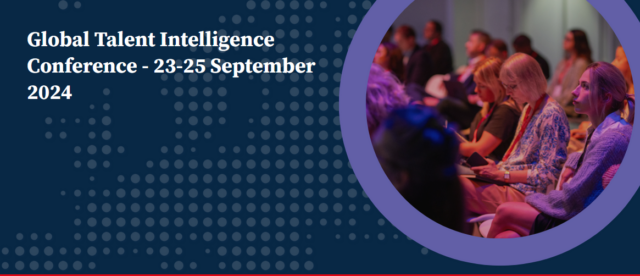
You hear much about talent intelligence, or TI, in the recruitment industry. Last year, the first international conference on this topic was organized in Hoofddorp, and this year, the event will return there for its second edition in September. But what exactly are we talking about when it comes to this subject? And why is it important?
TI heavily utilizes buzzwords like big data, A.I., machine learning, and social listening.
If we first ask Google’s Gemini, we learn that Talent Intelligence is a relatively new field within the recruitment industry that revolves around ‘collecting, analyzing, and using data and insights about potential candidates and the labour market. The goal is to make informed decisions about recruitment, selection, and talent retention.’ We also learn that TI makes use of big data (online profiles, CVs, labour market data), AI and machine learning (advanced algorithms, always sounds good), and social listening (online conversations and discussions about vacancies and the labour market).
Active Listening
Let’s immediately ask about the benefits of this new TI approach because Gemini doesn’t take long to come up with an answer. Recruitment can become more efficient thanks to targeted searches and identifying the most promising candidates. Recruiters would also be better able to respond to supply and demand in the labour market and tap into a higher quality of candidates. By actively listening to the needs and expectations of candidates, the employer’s image can finally be strengthened, and the candidate experience can be improved, according to the A.I.
TI can promote diversity by uncovering biases in the recruitment process.
OpenAI’s ChatGPT also comes up with a similar list of ‘strategic reasons’ to use (more) Talent Intelligence, from gaining insights into the talent pool and market trends to cost reduction, faster time-to-hire, higher retention, and more strategic workforce planning. TI can also promote diversity by uncovering biases in the recruitment process and helping implement inclusive recruitment strategies, according to ChatGPT, which further points out that Talent Intelligence can stimulate better recruitment decisions, strengthen the employer brand, and drive growth.
TikTok or Telegram
Now, you quickly get those lists when you ask ChatGPT something, but according to Geert-Jan Waasdorp, the A.I. application is reasonably accurate this time. The founder of Intelligence Group, one of the companies in the Netherlands specializing in TI, believes that the value of this specific form of Business Intelligence lies particularly in knowledge of the target group and the external labour market. ‘With that, you can sometimes achieve a recruitment advantage of 12 to 18 months without anyone taking advantage of it now. Think now, for example, about using TikTok or Telegram. Or recruiting on channels where freelancers are located.’
‘How high is the turnover at your competitor? What skills are they recruiting for? With TI, you can gather that kind of information.’
He says TI can also give you insight into what is happening at the competition. ‘How high is the turnover there? Are people dissatisfied? Is a too-low salary offered? What skills are they recruiting for? With TI, you can gather and benefit from that kind of information. You can also discover new talent pools with it and gather arguments to start looking and recruiting differently internally. Once, Big Data was a trend. Now it is A.I. I think Talent Intelligence connects them all. Your insights combined with external data and a layer of A.I. over it to entice your target group.’
Grip on Your Most Important Resource
According to him, Talent Intelligence is indispensable for gaining control over the most important resource in your organization: people. ‘Those who master this never suffer from ageing or other surprises in the market. All recruitment successes have two ingredients: vision and data. Talent Intelligence provides the latter and is the fuel for vision. Knowing your target group and the labour market is essential in winning the war for talent. Without Talent Intelligence, talking about the war for talent is an empty shell. And you also don’t just run onto the battlefield without a gun.’
‘You also don’t just run onto the battlefield without a gun.’
His vision aligns with that of Draup, a Talent & Sales Intelligence Platform from Bangalore, India, which also outlines the significant benefits of a more data-driven approach to recruitment. ‘Talent Intelligence can reduce costs, improve the process, and reduce time-to-fill,’ says CEO Vijay Swaminathan, one of the speakers at the first edition of the Global Talent Intelligence Conference. ‘TI provides insight into the (in)effectiveness of current approaches to recruiting and managing talent and helps us revise our systems,’ he says. Without data, there is no chance for improvement.
Want to Know More?
Buy your tickets for the Global Talent Intelligence here. Or contact us for information about group tickets.
GTIC








